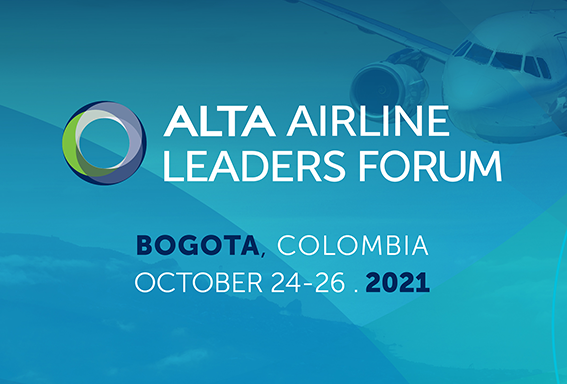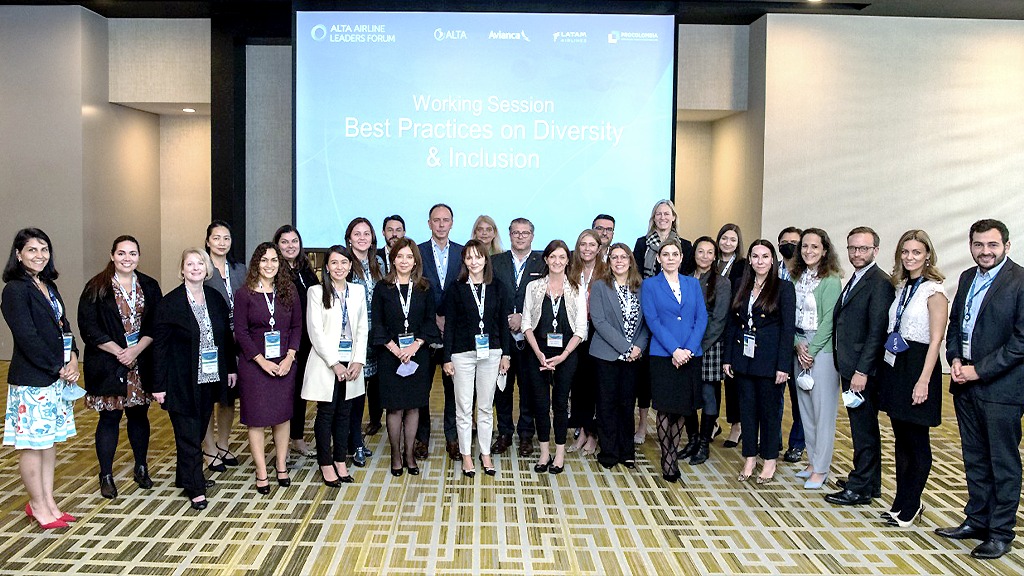Source: ALTA
Executives will gather today at the Working Session: “Best Practices in Diversity and Inclusion” during the ALTA Airline Leaders Forum aimed at promoting a more diverse, creative and empowered aviation in Latin America and Caribbean. Hosted by the Latin American and Caribbean Air Transport Association (ALTA), the participants will share meaningful thoughts about what the aviation industry needs to be more diverse and how to set the best path for the next generation of skilled aviation professionals.
José Ricardo Botelho, ALTA’s Executive Director & CEO, commented; “it is urgent for us to promote more and more meetings to talk about diversity and inclusion, generate concrete ideas and commitments on how to attract more women to aviation, support their training and career development, and achieve even more inclusive work environments.”
According to a new survey by IAWA, the International Aviation Women’s Association, and Oliver Wyman, more than half (59%) of women working in leadership positions in aviation have considered leaving the industry. Women are more likely to be pushed out because of negative experiences, while men who leave the industry mostly do so because of the lure of better opportunities.
The survey found that the industry has not made progress in addressing its gender gap at the leadership positions, since one-third of female respondents reporting that it takes them longer to reach leadership positions relative to their peer group. In comparison, 92% of males we surveyed moved ahead faster or at the same pace as their peer group.
Furthermore, men in the industry generally believe that their companies are doing a good job of offering effective and accessible programs to promote gender equality. Women, on the other hand, do not feel that these programs are as effective or easily accessible.
“Women report that they are struggling throughout their careers in today’s aviation culture,” added Bobbi Wells, president of IAWA. “Our study shows that, compared to men in the industry, women report more negative experiences, a slower career progression and fewer opportunities to take on top-level or challenging roles. It’s time for aviation leaders to change these dynamics if we want to attract and retain the most talented workers, regardless of gender.”
There is a strong need for action to ensure that women’s participation in the aviation industry does not decline. This scenario is beginning to change in Latin America and Caribbean with diversity and inclusion initiatives’ programs, such as the recently launched by Copa Airlines, ELEVA, which aims to encourage a culture that respects, values and includes diversity, promoting all its collaborators to feel that they can grow and succeed.
Copa Airlines’ ELEVA program is based on three pillars: Diversity, Equality and Inclusion, and its work focuses on: strengthening a culture that respects and promotes diversity, equality and inclusion in the working life, and in all its processes; having greater participation of women at all levels and in non-traditional roles; promoting the inclusion of people with disabilities in all areas; as well as more diverse teams.
“By signing the 25 by 2025 Commitment, we reiterate and reinforce our intent to continue implementing best practices and actions that promote equal opportunities between men and women, that promote work-life balance for women, and that provide them with tools allowing them to grow and develop to achieve their goals,” noted Pedro Heilbron, President of Copa Airlines.
The 25 by 2025 Commitment (25by2025) from the International Air Transport Association (IATA) is a voluntary, global aviation industry initiative focused on improving the female representation in the industry. In addition to the 25 by 2025 Commitment, Copa Airlines is a signatory of the United Nations Global Compact, a signatory of the Women’s Empowerment Principles (WEPs), an active participant in the Gender Parity Initiative of the Panamanian Ministry of Social Development (MIDES, by its Spanish acronym), and in 2020 the airline was awarded certification in the Gold category of the “Yes Gender” Equality Seal led by the United Nations Development Program (UNDP).


